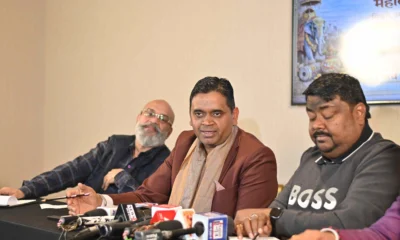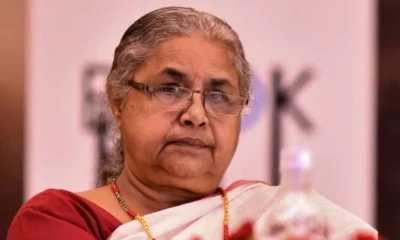[vc_row][vc_column][vc_column_text]In 10 years from 2008-2018, there was a more than 10 times rise in number of Indian people seeking asylum in other countries as they felt their life and liberty would be in danger if they continue to reside here.
In 2009, 4,722 Indians applied for political asylum in other countries. By 2018, this number rose to 51,769, reveals an IndiaToday.(IT) in analysis of data collected by the office of United Nations High Commissioner for Refugees (UNHCR).
In these 10 years, the United States and Canada have remained the most favoured countries for Indians seeking political asylum. In 2009, as many as 1,321 Indians applied for political asylum in the US while 1,039 did it in Canada, the IT report said. But in 2018, a total of 28,489 Indians applied for political asylum in the US in 2018 while 5,522 did it in Canada.
The Narendra Modi government in 2018 told Parliament it believes that those who apply for asylum to a foreign government “denigrate the system in India to obtain personal gains despite the fact that India, being a democratic country, provides avenues for everyone to redress their grievances lawfully”, reported IT.
United Nations data on asylum seekers for 2018 show that after the US and Canada, Indians prefer to seek political asylum in South Africa (4,329), followed by Australia (3,584), the UK (1,667), South Korea (1,657) and Germany (1,313).
Seeking political asylum in these countries isn’t surprising as they are all developed economies and have an image of being peaceful and prosperous.
Also Read: Skeletal remains of 108 children found outside Muzaffarpur Hospital
But what may come as surprising to some is that Indians have also sought political asylum in countries like Yemen, Sudan, Burundi, Bosnia among others – countrieswhich have routinely hogged headlines for war and armed unrest in recent times, said the IT report.
Overall, in 2018 there were 57 countries where Indians applied for political asylum.
UNHCR reports show that despite being the world’s largest democracy, India is not a popular destination among political asylum seekers.
For example, in 2018 there were 35.03 lakh political asylum seekers in the world but only 0.34 per cent of them (11,957) sought political asylum in India.
The US, Germany and Turkey were the most favoured destinations for political asylum seekers with 7.18 lakh, 3.69 lakh and 3.11 lakh people applying to these countries respectively.
But this does not mean that no one is applying to India. When it comes to South Asia, India has the largest number of political asylum applications. In 2018, of the 11,957 political asylum seekers in India, 65 per cent (7,864) were from Afghanistan. This was followed by those from Myanmar (2,064) and Yemen (1,134).
Overall, people from 40 countries sought political asylum in India fearing threat to their lives in their native countries.
Analysing data for political asylum requests related to India, IT said that the number of Indians seeking political asylum abroad is 334 per cent more than the number of people from other countries seeking political asylum in India in 2018.
These political asylum requests aside, by the end of 2018 India was sheltering close to 1.95 lakh refugees, but Pakistan and Bangladesh had more.
Pakistan had the largest population of refugees (14.04 lakh, mostly from Afghanistan), followed by Bangladesh (9.06 lakh, mostly Rohingya Muslims from Myanmar).
India is not a signatory to the 1951 United Nations Conventions on the status of refugees, neither has it signed the 1967 UN protocol on the same. These two detail the rights and protection that refugees can enjoy in host countries.
Also Read: Over 12000 farmer suicides in four years in Maharashtra, says state govt
Besides this, India does not have a clearly defined domestic policy on refugees nor is there any law to guide authorities on how refugees must be treated in India. Their treatment so far has been subjective and varied from case to case.
The legal hurdle aside, global data on refugees and asylum seekers show that a majority of people who are forced to leave their native country prefer to take refuge in some neighbouring country.
UNHCR report titled “Global trends: Forced displacement in 2018” states that there were 25.9 million refugees in 2018. The report says nearly four out of five (i.e. 80 per cent) refugees live in countries neighbouring their country of origin.
When it comes to India’s immediate neighbourhood, Afghanistan, China (Tibet), Myanmar, Pakistan, Bangladesh and Sri Lanka have been sources of refugees because of internal disturbances and civil war there.
India received thousands of refugees from Pakistan (at the time of Partition in 1947), Tibet (in the late 1950s and early 1960s when the Dalia Lama escaped Tibet and took shelter in India), Bangladesh (in 1970s during the Bangladesh Liberation War) and Sri Lanka (in late 1980s during the civil war).
But in recent times barring the protracted war in Afghanistan and the Rohingya crisis in Myanmar, there hasn’t been any major trigger that forced large-scale displacement of people.
Also Read: FATF gives Pakistan time till October to act against terror, India says it expects compliance
In the past few years India has seen an aggressive politicisation on the issue of providing shelter to refugees, especially Rohingya Muslims.
The BJP has been vocal in demanding repatriation of Rohingya. It has often claimed that they pose threat to national security. Other political parties, including the Congress, have shied away from being vocal on the issue and taking a clear stand.
[/vc_column_text][/vc_column][/vc_row]


 Latest world news12 hours ago
Latest world news12 hours ago
 Cricket news12 hours ago
Cricket news12 hours ago
 Latest world news11 hours ago
Latest world news11 hours ago
 India News8 hours ago
India News8 hours ago
 India News3 hours ago
India News3 hours ago















